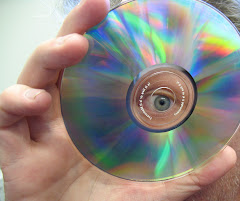
I don't know what it means that most of us don't have enemies. Because, gosh, it seems that you can't read two paragraphs of an ancient piece of literature (think David's Psalms or Homer's Iliad) without encountering the protagonist pretty much wishing death and suffering on an enemy.
Philosophers and moralists don't lack for reasons to explain our relative lack of personal enemies today. They might reach into their bag of ever-ready and infinitely malleable explanations for all things unpleasant and blame the easy-going relativity that comes along with liberal democracy. We don't hate, they'd say, because we don't care. We lack honor and a sense of pride that must be defended. We value niceness over principle. We have embraced decadent 1960's values at the expense of 1360's virtue, and who are we to judge other people's values any more than we should judge their taste in music? How can you have an enemy, they'd say, if you can't judge right from wrong, or good from bad.
And maybe they're right. Or at least have a point. This isn't the post to make a case one way or another.
But even if we don't have enemies most of us know rude or obnoxious or just plain hateful people who take pleasure in flinging dirt in the face of others. Through gossip. Through rudeness. Through backstabbing. Through the breaking of confidences. Through the delight they take in embarrassing others, of delighting in seeing them fall. Through speaking ill of others in the absence of any evidence for that judgment.
I teach my daughters that it's wrong to take delight in others failing in an innocent task. The world is much the better when others use their talents well, and we ought to be generous in recognizing the good traits in others. When actions are praiseworthy we ought to praise them, and when they're not we ought first to offer encouragement to do better. Envy is natural, of course, but it's a sin, especially when it becomes a regulating impulse for one's actions. The world is more interesting and delightful when lots and lots of people are doing lots of different things well, even when they're doing things we value and wish to do well ourselves.
The poor will be with us always, and I suppose we'll also have the hateful and petty with us right up until the end. But what a shame. Dang if they don't make life the worse for everyone else. And crazy modern liberal that I am, I can't help but think that as often as not it's fear and insecurity and not plain ol' evil that makes them that way.








.jpg)




5 comments:
Yes, as individuals we have fewer enemies coming at us in scripted, recorded battles or with a civil throwing down of the gauntlet, true. However, one could make an argument for being able to count more “enemies,” in today’s terms, rather than fewer. This supposes a definition based on “If you’re not for us, you’re against us,” with “us” referring to your average Joe and “for” simply meaning that people leave their house in the morning with a basic respect and concern for said Joe whom they might encounter.
Now I’m generally an optimist when it comes to how strangers are going to treat me and mine, but you yourself gave a great laundry list of the type of behaviors that are increasingly common components of our world. We’re all familiar with the effects of our personal space being restricted in the context of an elevator or apartment living. The less you are allowed, the less you tend to acknowledge your fellow humans. I don’t think it’s a stretch to apply that lens to what happens as the world feels more crowded. I’m no population control freak, it is what it is. I’m just saying there seems to be more of a sense of “everyone or every family for themselves,” especially in larger cities. When I lived in a much smaller city, there was a good chance that I would see someone I knew everywhere I went. I remember honking at, what seemed to me, some bad driving, only to find out that I had honked at someone I knew. Events, good and bad, were likely to make the rounds and come back to you, because everyone was only a degree or two of separation away from everyone else, or so it seemed. That personal accountability factor seems to play a primary role in regulating human behavior.
A great example of what happens when that obligation is taken away can be seen on any website where you can leave comments on stories. When you are able to sign your hate-spewing comment as YouS*** instead of John Doe, 123 Main Street, City, State, that seems to unleash the inner beast.
I love technology and privacy rights and big cities and even strangers, and I’m not sure this is even where I meant to go with all this, but some days it feels that the lessons in virtue and kindness that we strive to teach our kids are done so in the face of a lot of opposing forces.
So funny that you put spontaneous combustion on the poll. When I was young, my older sister left an article lying around that she had been reading on "confirmed" cases of spontaneous combustion. I had nightmares for weeks worrying that my own combusted end was imminent, since of course the experts were stumped as to what triggered the terrible events. :)
Could it be that we have a lack of personal enemies because we have so much? There is plenty of food and entertainment around so I don't need "to get all bent out of shape" if someone wants what I have or is rude to me. I just have to shop somewhere else or change channels or get in my car and leave.
Mike, you started by saying most of us don't have enemies. Allow me to suggest that we do in fact have enemies.
You may be thinking most of us don't have enemies we can call by name. Fair enough. But what is an enemy? It's not just one who attempts to harm you whose name you know. It can also be someone, or lots of people, who attempt to harm you without you knowing who they are, or even they knowing who you are.
How can this be? If a mob of people were ransacking and burning your house, you would count them as enemies whether you knew them or they knew you.
Can we not also count as enemies those who seek to harm us by using force to exert their will over us in other ways? What about those who use the political system as their angry mob. Sure, they wouldn't gather their friends and break into your house and steal your stuff, but they might work with those same friends to use the state to appropriate your property. And feel no guilt at all because hey, it's not personal. They don't even know your name.
It's not just money, of course. There are others who seek to use government to control what you can and can't read, or who you can and can't associate with. Are such people our enemies?
I don't honestly know. But I know I would treat them as enemies if they did in person what they instead use the state to do in their stead.
I was very intrigued by your question, and honestly didn't want to accept the fact that somehow, over the centuries, we just have gotten rid of our enemies. It just didn't square with my beliefs about unchanging human nature.
I think I can stand on this: If you seek to unjustly force your will on your neighbor through any means, you are his enemy, whether all parties are known to each other or not.
There. Now you have 100 million enemies.
Joe
heya joe--
honestly i had no idea that you ever saw my blog. welcome aboard!
unlike you, i don't need to think and mull over a subject to launch right into it. that's too much work. much easier just to write first and apologize and qualify and retract later.
so here goes. i think a lot of what counts as "unjust" in my mind depends upon process--working within the rules.
Example: a team that beats you in basketball may be your opponent, or even your rival, but shouldn't be thought of as your enemy. but if they play dirty, then that's a different story.
where you and i disagree, i think, is where we draw the line for counting something as unjust. were strict libertarian natural-law arguments somehow magically accepted by all good-faithed people and explicitly articulated in the supreme law of the land, then, yes, the democracy of today would be but a veil for warfare. but what i count as a legitimate process for deciding those lines, you want established up front as the rules of the game. i think you would prefer to make libertarian principles for markets and delineating property claims as first principles built into the constitution rather than the result of a deliberative process.
i can imagine someone trying to tax me and others at my income tax bracket as working squarely within the rules of justice--that is, working within a good-faithed effort to promote the common good. i may think that he's foolish, or unwise, or misguided, but i wouldn't consider him my enemy. even if, yes, i would do so if he tried to take my money by force through personal theft.
we all have substantive lines in the sand. libertarians aren't alone in that stance. justice isn't all just about process (though that's my own emphasis.) what people seek to establish within the process does, in fact, matter. of course.
but in general i don't have a crusader's temperment, and i tend to give people the benefit of the doubt that their motives are at least as noble as mine. and i think that if they operate chiefly in the realm of evidence and argument in their attempt to persuade, that's about as much as i can expect from anyone.
my guess is that you think of the rules of property as far more natural than i do--that is, as much discovered by right reason as created by human will. therefore i think you see people who disagree with you on this point as either simply wrong-headed, or cheating. ignorant or evil. i don't see it that way. i think smart and thoughtful people of good faith can come up with a variety of positions on such issues, and therefore a felt spirit of comity and partnership in a common (if also contested) enterprise of justice is the more comfortable disposition for me to take toward them.
i appreciate your comments, joe. now i'm off to watch "the wire" on dvd. it's a show about drug gangs and violence and corruption and murder and theft.
and, no, that's not code for politics as usual.
Post a Comment